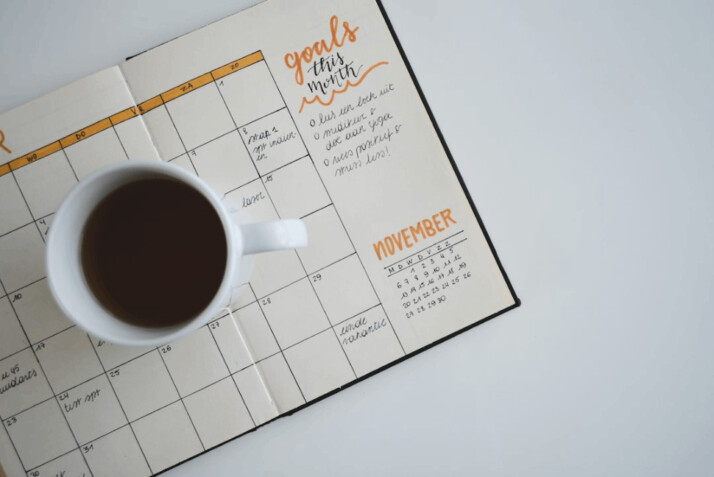No matter what the purpose of a meeting is, having an effective agenda can make or break its success.
An agenda should be clear and concise, outlining the objectives of the meeting and each topic that will be discussed. Participants need to know what to expect, so they can come prepared, thereby making meetings more efficient and productive.
In order for an agenda to be effective, it should cover all pertinent information while still being succinct. This article answers all your questions about meeting agenda and notes.
After reading the article, you’ll be able to clearly identify the importance of meeting agenda and notes.
Importance of Meeting Agenda and Notes
Agendas and notes for meetings aren’t just random buzzwords. They are important for the success of any meeting. Let’s take a closer look at the importance of the two.
Agenda Gives the Meeting a Purpose
An agenda is a document that outlines the topics that will be discussed during a meeting. It’s important to have an effective agenda because it gives the meeting a purpose and helps participants come prepared. An effective agenda should cover all pertinent information while still being succinct.
It Defines Responsibilities
The agenda should clearly state what the objective of the meeting is and define each participant’s responsibilities. This ensures that everyone is on the same page and knows what is expected of them. It also prevents confusion and allows for a more productive meeting.
Agenda Helps You Stay on Track
Too many times, we have been in meetings that didn’t exactly go well. People speak out of turn, and everything looks to be without direction. This often happens because the organizers didn’t prepare an agenda for the meeting. Your agenda helps you know the next thing to do, thereby bringing order to the meeting.
Notes are also important for keeping track of decisions made during a meeting. You also use it to follow up on any action items assigned during the meeting. If notes aren’t taken, or they’re ineffective, there’s a good chance task won’t get accomplished and promises won’t be kept.
In short, great agendas make for great meetings, while useful notes ensure everything gets done properly afterward.
How to Write a Meeting Agenda
Below, we explain the important steps required to write a solid meeting agenda.

Indicate the Type of Meeting
The first step is to establish the type of meeting you want to hold. There are different types of meetings, including board meetings, team meetings, and feedback meetings.
Spell Out the Objectives
There must be an objective to a meeting, and this is a key part of your meeting agenda. What do you aim to achieve at the end of the meeting? Your answer to this question will help you spell out the objectives of the meeting. Be clear on what the outcome of the meeting is and list that out to help the meeting guide itself.
Outline Specific Meeting Topics
There are specific meeting topics that combine to help you achieve your objective. You must be able to list out these topics in advance in order to help guide the meeting. Identify which topics are most important and focus on them.
Assign Time to Discuss Each Topic
A good meeting is one where the time is spent effectively. Hence, it is best to allocate time to discuss each of the topics identified before the meeting starts.
Doing this can be a bit tricky because some discussions may take longer than expected. If you plan well ahead, you can solve this problem.
Meeting Agenda Templates
We provide a few templates for you to peruse. These templates can help you draft yours. In some cases, they may be exactly what you need.
Template 1
1. Introduction.
2. Review and approve the minutes from the last meeting.
3. Old business.
-i) Action items from the last meeting that are yet to be completed
-ii) Discussion of any outstanding issues or concerns
4. New business.
5. Announcements/updates
6. Adjournment
Template 2
Meeting Agenda
1. Welcome and introduction.
2. Review of previous meeting minutes.
3. Old business
a. Discussion on new product launch.
b. Customer service survey results
c. Marketing plan update
d. Team member performance reviews
e. Budget review
f. Any other old business items from the last meeting that need to be addressed
4. New Business
a. Update on company goals for the upcoming year
b. Discussion about expanding our sales territory
c. HR policies – updates or changes
5. Closing remarks
6. Next meeting date.
Final Words
When it comes to holding a productive meeting, having an effective agenda is key. An agenda can help ensure that everyone attending the meeting has a clear understanding of what will be discussed. Thus, you can avoid any surprises.
Explore All Write A Meeting Agenda Articles
Writing an Effective One-on-One Meeting Agenda Guide
With proper structure and guidance, you can create an effective one on one manager meeting agenda. One-on-one meetings can positively impact your…
When to Send a Meeting Agenda: an Effective Guide
What’s the best time to send out a meeting agenda? What if someone doesn’t receive it in time? How can…
Effective Guide to Strategy Planning Meeting Agenda
You’ve been asked to create a strategic planning meeting agenda, but you’re wondering what other people do when they start…
Effective Guide to Parent-Teacher Meeting Agenda
If you’re a parent of a student attending school, then there’s one event you don’t want to miss each year…
Guide to Better Marketing & Sales Meeting Agenda
If you’re like most business owners, you know that effective marketing and sales are essential to your success. But did…
Clear & Better Agenda for Meeting With Clients
A client meeting agenda is a document to ensure that you and the client stay on track, making the most…
